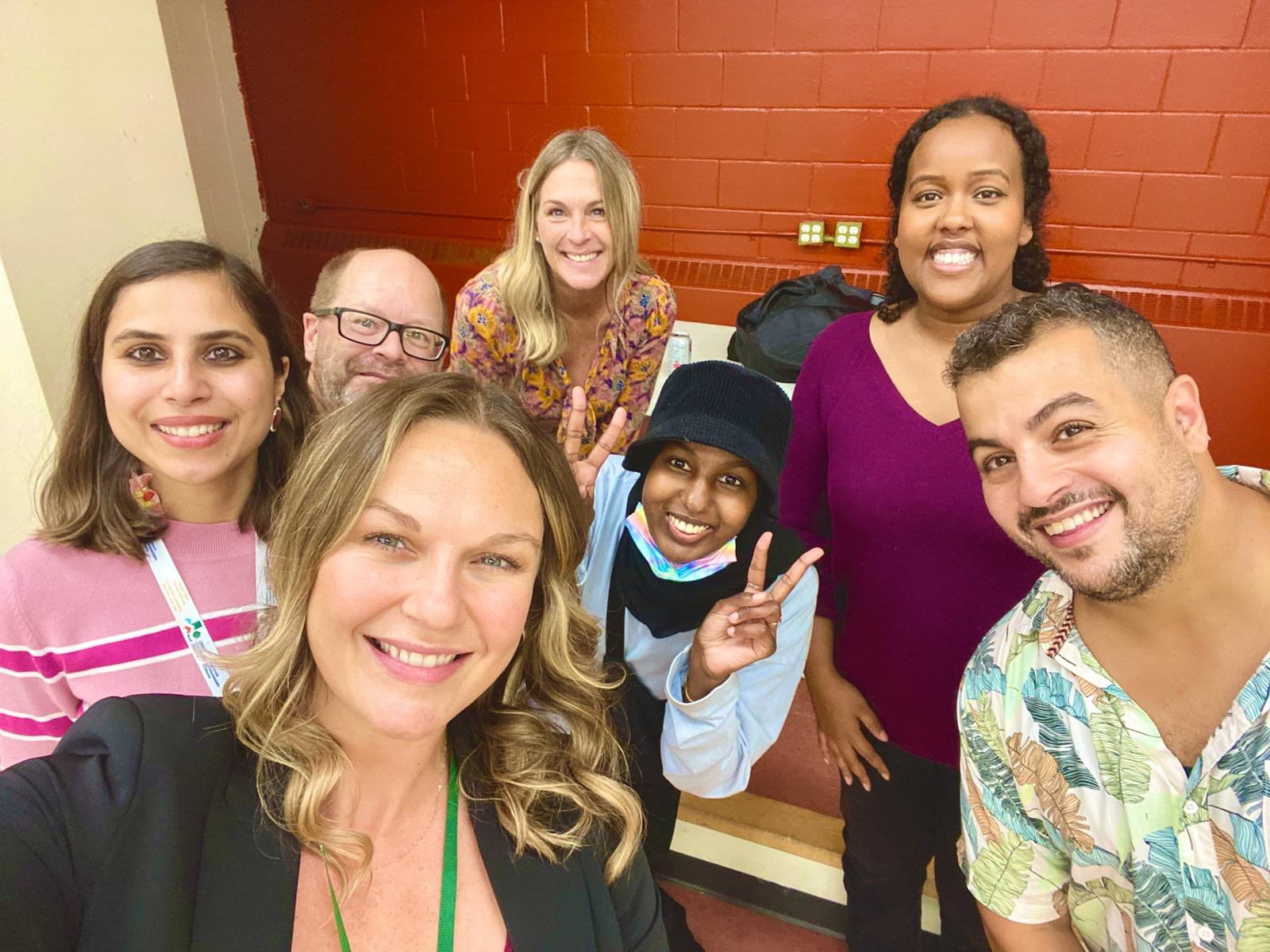Nov 8th, 2023
Meet Amanda: A Look at the Work of a Community Developer in a Changing Environment

Share this story
It’s easy to tell Amanda Ryan loves her job.
She bursts with pride at community successes and works to address challenges, helping to build capacity to support residents.
On Sept. 21, Amanda was recognized for her work by Ottawa Salus with a Community Partner Award for her extraordinary partner commitment. She said everyone on the CD team and frontline staff from the many partner organizations that work in OCH communities deserve recognition.
The work of a Community Developer touches nearly all OCH departments. They are well known for working to help tenants put together celebrations and barbecues. At the core of their work, however, CD is taking a collaborative approach with residents and seeks to address gaps and challenges. They support a diverse range of needs by taking a strength-based approach to building resident capacity through social inclusion, enhancing community safety, and sustaining and building partnerships.
The role of the Community Developer often serves to communicate with tenants and share resources.
“We push the tenant perspective to the forefront to be considered when bigger picture decisions are made,” Amanda said.
Like all teams – Community Developers embody OCH’s CARE values – Collaboration, Accountability, Respect and Excellence.
So, what does a typical day look like?
Amanda said she usually starts the day by reading community safety reports, emergency timelines, and emails to set priorities.
“When I was a TSW (Tenancy Support Worker) I would read the reports to deal with tenants one-on-one, but now I look for an impact to the community,” she said. “I look for trends that are emerging, is there an increase in loitering? And what is the impact – increased noise or a significant event.”
A Community Developer often works as a guide, helping residents navigate external support systems and OCH services.
“Everything landlord related, security, pest management, housing administration and maintenance, comes to us,” Amanda said.
But the current climate presents new challenges – Amanda said the landscape looks much different than it did five years ago when she left the Pinecrest Queensway Community Health Centre to come to OCH.
“Issues with food security are at a crisis level,” Amanda said.
Aside from food insecurity, the complexity of issues tenants face in their communities is increasing – such as mental health and addiction issues.
These challenges are changing the way the team has to work. And community engagement levels are still recovering from the COVID-19.
“With COVID-19, as much as we were all apart, we were all working together,” Amanda said, emphasizing some inter-departmental cooperation and advocating to meet communities where they are.
“The community is becoming more complex, and we are becoming more complex with it,” she said. “Any kind of model includes better support for tenants will improve the communities for everyone.”
Amanda said moving to a new framework to assess residents’ needs will help address those tenants with major vulnerabilities and provide the support necessary for successful tenancies.
OCH and its health and social service partners have the resources to work on this approach. With a solid foundation of past work and strong collaborative relationships, we’re ready to tackle this challenge head-on.
Amanda said working with partners opens up a whole other side to the community.
“It allows me, as an agent of the landlord, to meet and interact with tenants who may not otherwise engage with us,” she said.
Onsite partners such as Salus have been priceless as the complexity of issues and the increased need.
“Every day, they meet people where they live,” Amanda said.
Amanda said despite challenges, she is always impressed by the resiliency of tenants.
She gave an example of tenants at 415 MacLaren – at the last tenant circle meeting, 17 residents came
to the meeting. Those volunteers help organize events and run the building’s “Snack Shack” in the lounge kitchen.
At 215 Nepean, some women were concerned about safety, so they set up a group text message and worked with the Tenancy Support Worker so they could arrange to run errands in pairs and check in on each other.
Amanda said community celebrations and events are about much more than a chance to get together.
“It’s not just a BBQ or breakfast,” she said. “It’s a chance to come, be seen and share a concern.”







